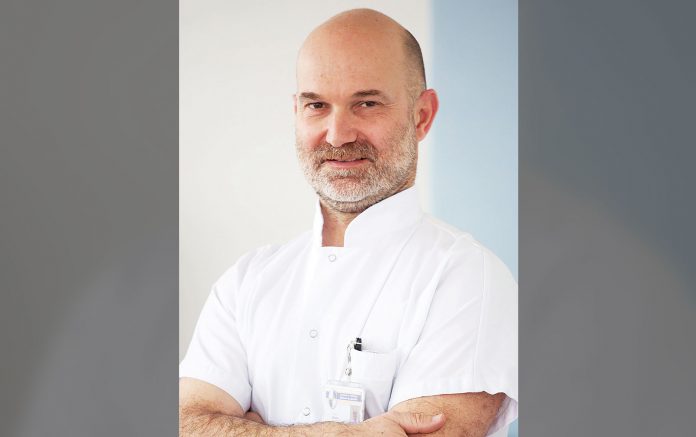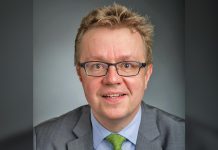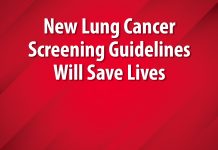Posted: June 2018
The 2018 Heine H. Hansen Award recipient was IASLC Lung Cancer News Associate Editor Fabrice Barlesi, MD. The award was presented at the 2018 European Lung Cancer Congress (ELCC), sponsored by the European Society for Medical Oncology (ESMO) and the IASLC. Dr. Barlesi is professor of medicine at the University of Aix Marseille and head of the Multidisciplinary Oncology and Therapeutic Innovations Department at Assistance Publique Hôpitaux de Marseille, in France.
Dr. Barlesi’s Heine H. Hansen Award Lecture at ELCC, “The Power of Triple H,” was a brief discussion not just of the history of lung cancer but of its future. Building on the work of Heine Hansen and others, lung cancer trials are more comprehensive and multifaceted than ever, which is scientifically exciting. Challenges remain, however, regarding stigma associated with the disease, the complexity of precision medicine, and societal expectations. Dr. Barlesi’s lecture is summarized here.
Heritage: Heine Hansen was 12 years old when the relationship between tobacco exposure and lung cancer was made, and he was 57 when the realization that patients with lung cancer should be treated with chemotherapy was made. Lung cancer specialists should work to protect the heritage—the groundbreaking work of the true pioneers in the field—to provide optimal outcomes for patients with lung cancer, who still need advocates. Data from a public survey in the United Kingdom showed that 70% of respondents felt like lung cancer was self-inflicted because it affects smokers. In a similar survey in the United States, 25% of respondents felt like patients with lung cancer deserved less respect than obese patients.
Human: Heine Hansen was the first to say that we should integrate biologic hypotheses and translational research into our trials. This inclusive outlook paved the wave for modern trials, such as the IFCT/UNICANCER SAFIR02, which is a multiarm trial that aims to compare the superiority of targeted therapies based on molecular testing compared to standard treatment. The PIONeeR trial, a public/ private consortium, will compare patients based on treatment response or disease progression and will allow for treatment of patients with different combinations of immunotherapy agents.
Hard: Questions and challenges abound in lung cancer. Society and patients have moved beyond the expectation of lung cancer as a chronic disease to the expectation of a cure. This is complicated by multiple perspectives and therapeutic options, but we must not forget to educate and enlist the help of general practitioners. In addition, precision medicine is complicated for patients and can result in missed opportunities in terms of trial participation and optimal treatment. Careful communication is needed to aid patient decision making.











